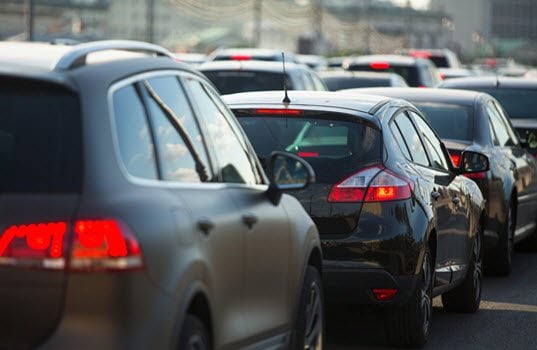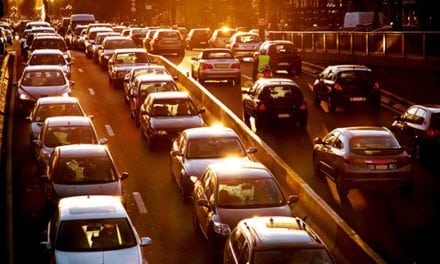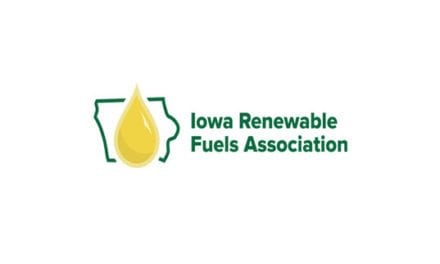On June 18, U.S. Senators Bob Corker (R-Tenn.) and Chris Murphy (D-Conn.) unveiled the first bipartisan proposal to shore up the Highway Trust Fund by making changes to the federal motor fuels tax, which funds improvements to roads, bridges and transit systems. The proposal would create a long-term, stable funding mechanism for the Highway Trust Fund and enact tax relief for American families and businesses.
“Growing up in Tennessee as a conservative, I learned that if something was important enough to have, it was important enough to pay for. That’s how we’ve governed in the Volunteer State, which has resulted in the second best transportation system in the country without having one penny of road debt,” said Senator Corker. “In Washington, far too often, we huff and puff about paying for proposals that are unpopular, yet throw future generations under the bus when public pressure mounts on popular proposals that have broad support. Congress should be embarrassed that it has played chicken with the Highway Trust Fund and allowed it to become one of the largest budgeting failures in the federal government. If Americans feel that having modern roads and bridges is important then Congress should have the courage to pay for it.”
“For too long, Congress has shied away from taking serious action to update our country’s aging infrastructure,” said Senator Murphy. “We’re currently facing a transportation crisis that will only get worse if we don’t take bold action to fund the Highway Trust Fund. By modestly raising the federal gas tax, we can address a crippling economic liability for this country—the inability to finance long-term improvements to our crumbling national infrastructure. I know raising the gas tax isn’t an easy choice, but we’re not elected to make easy decisions – we’re elected to make the hard ones. This modest increase will pay dividends in the long run and I encourage my colleagues to get behind this bipartisan proposal.”
The federal Highway Trust Fund provides more than half of the country’s spending on transportation projects and will begin to run dry in July likely halting the construction of any new transportation projects without action from Congress. This will result in a 50 percent reduction in Tennessee’s transportation budget in 2015 and create a $160 billion hole in state budgets nationwide over the next decade at a time when they can least afford it if not addressed.
The federal gas and diesel taxes, which are used to fund this account, have not been updated in over 20 years despite the desperate need for road and bridge improvements. As a result, the purchasing power of the gas tax is approximately 63 percent of what it was in 1993, and continues to decline. A change to the federal gas tax would not only strengthen purchasing power, it would also create thousands of new jobs and allow states to invest in long-term economic development projects.
The senators’ proposal would increase the federal gasoline and diesel taxes by six cents in each of the next two years for a total of 12 cents. This would provide enough funding to offset current MAP-21 spending levels over the next 10 years and replace all of the buying power the federal gas tax has lost since it was last raised in 1993.
The plan would index the gas tax to inflation, using the Consumer Price Index (CPI), to ensure that it remains viable into the future.
To offset the revenue raised from increasing the gas tax to pay for roads and transportation projects, Corker and Murphy propose providing net tax relief for American families and businesses. Examples of tax relief could include: permanently extending some of the tax provisions in the “tax extenders” bill that already have broad, bipartisan support, creating potentially billions of dollars in permanent tax relief for American families and businesses over the next 10 years alone; or another bipartisan proposal to reduce taxes by at least the amount of revenue raised from the gas tax over the next decade.
Historically, this proposal has received bipartisan support. Presidents Ronald Reagan, Bill Clinton, and George H.W. Bush all raised the gas tax in order to fund the Highway Trust Fund and make infrastructure improvements.











